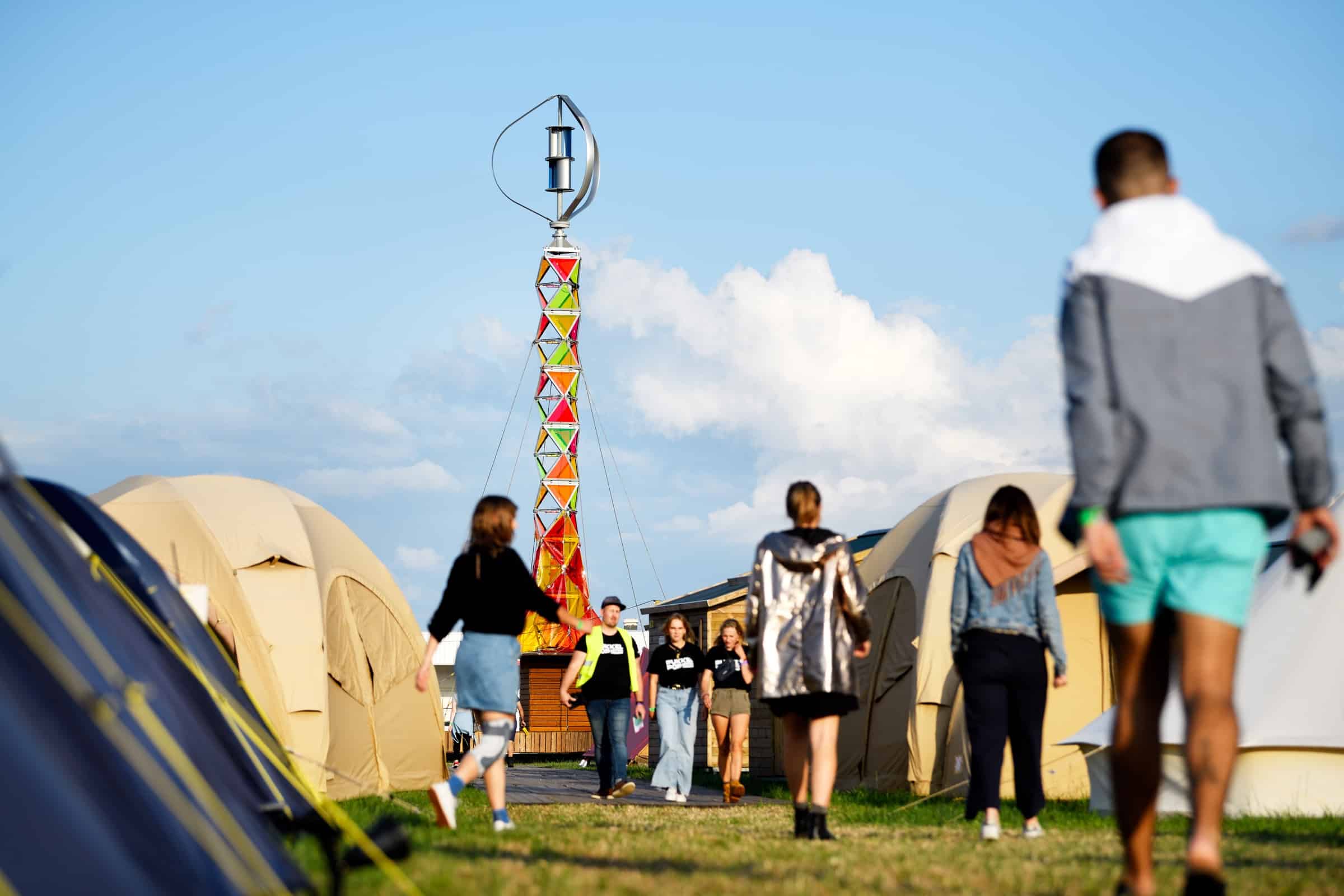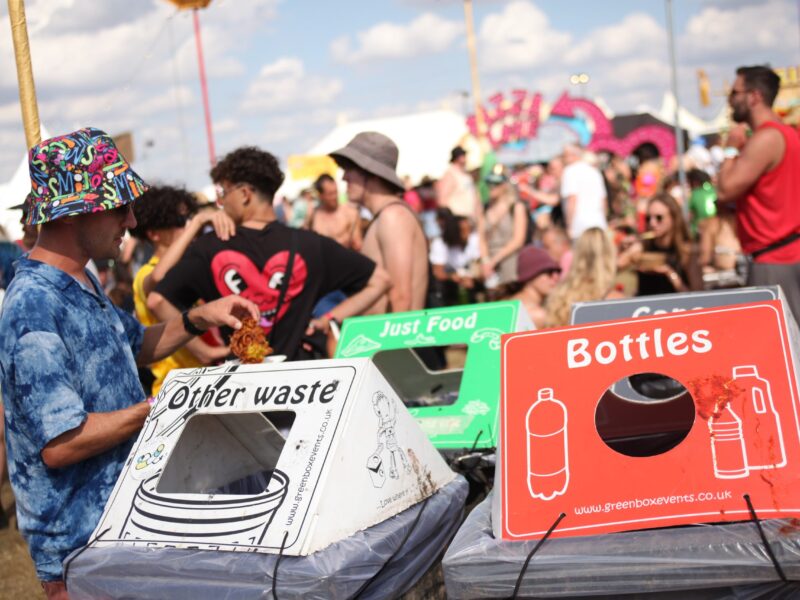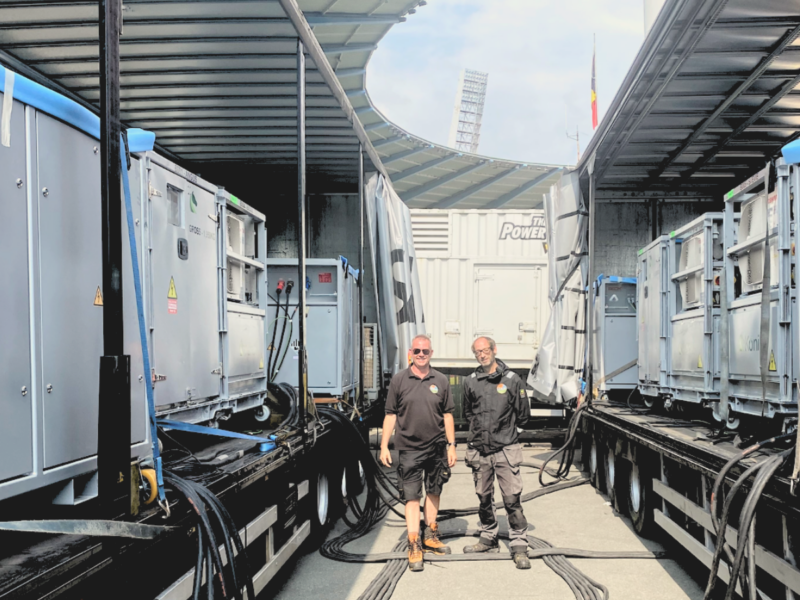
Innovative Power Developments
Currently, almost every European festival runs on polluting diesel generators for power supply. Fortunately, the event industry seems to be innovating rapidly in the field of energy. Ever-growing, large containers with more power seem to be a green replacement, or complement, of generators. What about the safety of such a battery container? Best-practises about innovative power developments in the event industry were shared during the ‘Sustainability, batteries and fire safety‘ panel at Eurosonic Noorderslag. Green Events’ Power Expert, Paul Schurink, participated in the panel together with representatives of Powershop, Veiligheidsredio (safety region) Groningen and energy company, Bredenoord.
First of all, using scarce fossil fuels pollute and accelerate global warming. Besides, diesel generators can leak fuel. When diesel ends up in nature you immediately causing an environmental crime. In order to prevent damages and emissions, more and more events include batteries to their power plans. Batteries don’t leak and, in combination with a generator running on biodiesel, reduce emissions. ‘About 80% of the events power supplies already use batteries,’ tells Paul Schurink. DGTL and Milkshake Festival already run for large parts on fixed electricity in combination with batteries. However, it varies from case to case whether a grid connection with a battery is more economical for the budget, because it requires fixed power points. ‘For example, Milkshake Festival went from 10,000 litres to 800 litres of diesel, but the budget remained virtually the same’.
The Fire Safety of Lithium-ion Batteries
Lithium-ion batteries are powerful accumulators with a high energy density. The risks involved in installing these batteries at festivals are assessed differently per region and the regulations differ per municipality. Here’s what you need to know about using lithium-ion batteries for your event:
Be aware! The risk of a lithium-ion battery catching fire is extremely small, but when it does the battery releases dangerous goods and can practically not be extinguished. Preventive measures could be taken to increase fire safety. For example, professional battery systems are equipped with surveillance which continuously monitors the battery at different levels. The battery will automatically switch off before a possible fire can occur. There is still a lack of clarity between hard information and sentiment. Sharing knowledge and continuing to communicate facts, therefore, remains very important.
In Holland a Publication Series of Dangerous Substances is currently on its way: an official Dutch standard and a guide on batteries for the Dutch fire department. This will, for example, state what the free distances of the batteries must be. Unfortunately, the documents will not be ready until around 2021. Before then, fire safety protocols must be agreed with the supplier of the battery, the festival organisation and the local fire department. So, everyone knows what has to be done if something would occur.
Also, various suppliers and knowledge parties are working on a circular handbook that will contain guidelines such as distances, which will be finished mid-2020. This handbook will also contain a table of threshold limit values (TLV), certifications and classifications. Classifications need to be done by independent parties.
Do you have questions about the use of lithium-ion batteries at your event? You can contact the Dutch Association of Event Makers (VVEM) for questions and provide knowledge about various topics in the event industry.






